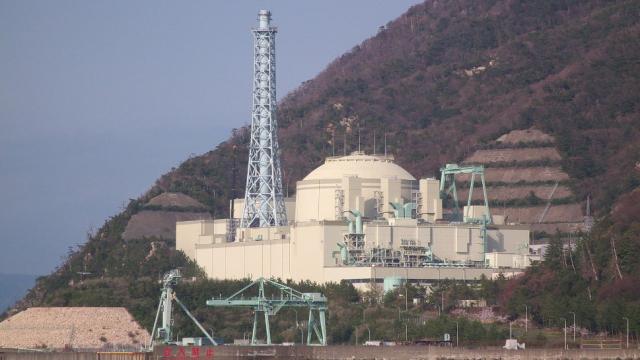The Monju nuclear reactor. (Image: Nife/Wikimedia)
The government of Japan has decided to decommission the experimental Monju nuclear reactor, which worked for just 250 days out of its total 22-year lifespan.
Located in Japan’s Fukui Prefecture, the sodium-cooled fast reactor has been mired in controversy since construction began in 1986. The reactor came online in April 1994, but a major fire sparked by a sodium leak forced a shutdown. After a long delay, the plant was restarted in May 2010, but another accident involving dropped machinery shut it down yet again. As of June 2011, the Monju plant has only generated a single hour’s worth of electricity since it was first tested back in the 1990s.
The experimental fast-breeder reactor, once dubbed the “dream reactor,” was designed to produce more plutonium than it consumes, thus minimising the amount of nuclear waste. It was a good idea in principle, but accidents and design flaws prevented the reactor from achieving full success. The plant, which cost $US9 ($12) billion to design and build, would have required $US4.6 ($6) billion in safety upgrades over the next 30 years to make it work again. “We have decided to decommission Monju because restarting it would require significant time and cost,” Chief Cabinet Secretary Yoshihide Suga told the Associated Press.
The government says it will cost $US3.2 ($4) billion to fully decommission the facility. The spent nuclear fuel will be removed from the reactor in 2022, and the entire structure will be dismantled by 2047.
Unswayed by this sad episode, Japan still plans to develop fast reactors that reprocesses spent fuel and reuse valuable plutonium and uranium. “We will make full use of the highly valuable knowledge and expertise acquired at Monju as we move forward with fast reactor development…first by concentrating on creating a strategic road map,” said Japan’s Industry minister Hiroshige Seko in the Japan Times.
The decision to dismantle the plant has triggered understandable frustration, both among those who are sceptical of nuclear power following the Fukushima nuclear disaster in 2011, and those who are worried about the associated loss in subsidies and jobs as a result of the closure. Locals are also worried about the dismantling process, citing safety concerns.
[Japan Times, Associated Press via CTV]
